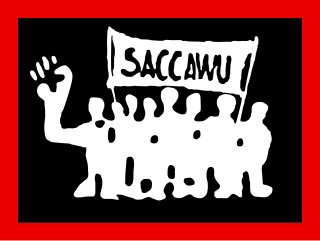Related Research Articles

Politics of Cape Verde takes place in a framework of a semi-presidential representative democratic republic, whereby the Prime Minister of Cape Verde is the head of government and the President of the Republic of Cape Verde is the head of state, and of a multi-party system. Executive power is exercised by the president and the government. Legislative power is vested in both the government and the National Assembly. The judiciary is independent of the executive and the legislature. The constitution, first approved in 1980 and substantially revised in 1992, forms the basis of government organization. It declares that the government is the "organ that defines, leads, and executes the general internal and external policy of the country" and is responsible to the National Assembly.

The recorded history of Cape Verde begins with the Portuguese discovery of the island in 1458. Possible early references to Cape Verde date back at least 2,000 years.

Aristides Maria Pereira was a Cape Verdean politician. He was the first President of Cape Verde, serving from 1975 to 1991.

Pedro de Verona Rodrigues Pires is a Cape Verdean politician who served as Prime Minister of Cape Verde from 1975 to 1991, and later as President from 2001 to 2011.

José Maria Pereira Neves is a Cape Verdean politician who is currently the president of Cape Verde, having previously served as the Prime Minister of Cape Verde from 2001 to 2016. He is a member of the African Party for the Independence of Cape Verde (PAICV). In the 2021 presidential election, he was elected with 51.7% of votes, beating his nearest rival Carlos Veiga who got 42.4% of the total votes.

The Congress of South African Trade Unions is a trade union federation in South Africa. It was founded in 1985 and is the largest of the country's three main trade union federations, with 21 affiliated trade unions.

The African Party of Independence of Cape Verde is a democratic socialist political party in Cape Verde. It was formerly a Marxist–Leninist communist party and the sole legal party in the country from 1981 to 1990. Its members are nicknamed "os tambarinas" in Portuguese, and they identify themselves with the color yellow.

The Democratic and Independent Cape Verdean Union is a conservative political party in Cape Verde.

The South African Commercial, Catering and Allied Workers Union (SACCAWU) is a trade union representing retail, distribution and hospitality workers in South Africa.

The National Assembly is the unicameral legislative body of the Republic of Cabo Verde.
Trade unions in South Africa has a history dating back to the 1880s. From the beginning unions could be viewed as a reflection of the racial disunity of the country, with the earliest unions being predominantly for white workers. Through the turbulent years of 1948–1991 trade unions played an important part in developing political and economic resistance, and eventually were one of the driving forces in realising the transition to an inclusive democratic government.

Socialist-style emblems usually follow a unique style consisting of communist symbolism. Although commonly referred to as coats of arms, most are not actually traditional heraldic achievements. Many communist governments purposely diverged from heraldic tradition in order to distance themselves from the monarchies that they usually replaced, with coats of arms being seen as symbols of the monarchs.

The following outline is provided as an overview of and topical guide to Cape Verde:

Cape Verde or Cabo Verde, officially the Republic of Cabo Verde, is an archipelago and island country of West Africa in the central Atlantic Ocean, consisting of ten volcanic islands with a combined land area of about 4,033 square kilometres (1,557 sq mi). These islands lie between 600 and 850 kilometres west of Cap-Vert, the westernmost point of continental Africa. The Cape Verde islands form part of the Macaronesia ecoregion, along with the Azores, the Canary Islands, Madeira and the Savage Isles.

Cape Verde was a colony of the Portuguese Empire from the initial settlement of the Cape Verde Islands in 1462 until the independence of Cape Verde in 1975.

Cape Verde–Guinea Bissau relations refers to the bilateral relationship between the Republic of Cape Verde and the Republic of Guinea-Bissau. Cape Verde is an island country about 900 km north-west of Guinea-Bissau, a coastal West African country. Both were colonies of the Portuguese Empire and they campaigned together for independence with a plan for unification, but the countries separated after 1980. The two countries were both founder members of the Community of Portuguese Language Countries (CPLP) in 1996, and are each members of the African Union and the Economic Community of West African States (ECOWAS).
The South African Railways and Harbours Union was formed by black workers of the South African Railways and Harbours Administration after they had been expelled from the National Union of Railway and Harbour Servants.
The Workers' Library and Museum was a non-profit labour service organisation (LSO) active in Johannesburg, South Africa between 1987 and the early 2000s. The organisation provided a meeting and learning centre for labour activists as well as students from the nearby Alexandra and Soweto areas. In 1994, it was expanded into the Workers and Museum in Newtown, Johannesburg, with the only museum in South Africa focussed on working people other than the Slave Lodge, Cape Town.

Cape Verde–Portugal relations are the diplomatic relations between the Republic of Cabo Verde and the Portuguese Republic. Both nations are members of the Community of Portuguese Language Countries and the United Nations.
The Amalgamated Union of Building Trade Workers of South Africa (AUBTWSA) is a trade union representing workers in the construction industry in South Africa.
References
- ↑ Baker, Bruce (2006). "Cape Verde: The Most Democratic Nation in Africa?" (PDF). The Journal of Modern African Studies. 44 (4): 493–511. doi:10.1017/S0022278X06002060. ISSN 0022-278X. JSTOR 4486701. S2CID 144361839.
- ↑ Niki Best (1997). "Cape Verde: Concertation". In Kester, Gerard; Sidibe, Ousmane Oumarou (eds.). Trade unions and sustainable democracy in Africa (2019 reprint ed.). Routledge. ISBN 9781138390317 . Retrieved 24 October 2019.